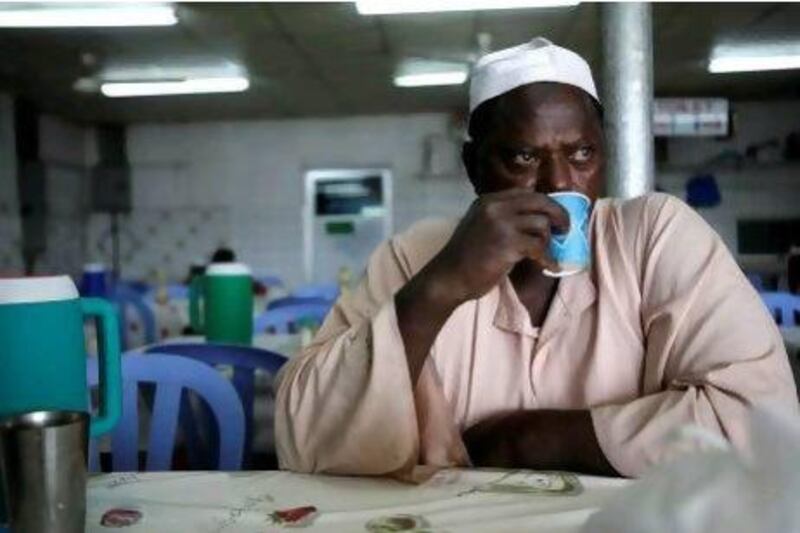MIRFA // Abdul Al Baqi's wife cries each time he goes to work.
Mr Al Baqi is a lorry driver from Sudan who drives regularly from Dubai to Yemen, a 10-day round trip. It is not fear of unrest in Yemen that worries his wife, but his safety on the motorway from Dubai to the Saudi border.
"I swear there are dangers, there are many dangers," said the father of seven. "She cries, 'Why, why do you do this work'?"
Nearly all international overland trade in the UAE comes down this road.
The right lane is crowded with lorries bound for Jordan, Syria, Lebanon, Saudi Arabia, Yemen and Egypt.
The left lane is reserved for sports cars and 4x4s that often zip past at over 140kph on a road that is largely unlit.
Mr Al Baqi is one of many drivers who are elated at the prospect of a new road.
"Sometimes there are 50 cars that are so close and if the car in the front has a breakdown they will all have a crash," said Mr Al Baqi.
"It would be better if they had another lane. There's only one road to Saudi."
He praised road conditions from Mirfa to the border and said that while road conditions in the UAE are better than those in Saudi, they are not without danger.
Mr Al Baqi might himself be considered an added danger on the crowded motorway. He spent three days in jail last week and paid a Dh10,000 fine for an infraction involving overtaking a lorry.
It had been three days since he last saw a crash.
"And today there was one," Mr Al Baqi said.
"Traffic was moving slowly, slowly, slowly."
He added, as an afterthought, "It's not usually so bad that they have to go to the hospital."
But he believes things will improve with the new road.
"Three lanes would be better than two, 100 per cent better," Mr Al Baqi said.
"With two lanes, it's a big fear, it's a big problem. It's fear."






